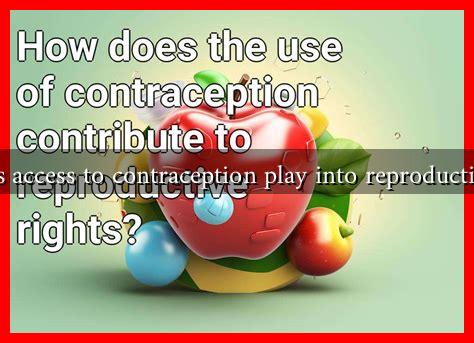-
Table of Contents
How Does Access to Contraception Play into Reproductive Rights?
Access to contraception is a fundamental aspect of reproductive rights, influencing not only individual health outcomes but also broader societal dynamics. The ability to control reproductive choices empowers individuals, particularly women, to make informed decisions about their bodies, families, and futures. This article explores the intricate relationship between access to contraception and reproductive rights, highlighting its significance through various lenses, including health, economic stability, and social equity.
The Foundation of Reproductive Rights
Reproductive rights encompass a range of issues, including the right to access contraception, the right to safe and legal abortion, and the right to receive comprehensive reproductive health care. The United Nations recognizes these rights as essential to achieving gender equality and empowering women globally. Access to contraception is a cornerstone of these rights for several reasons:
- Autonomy: Contraception allows individuals to make choices about their reproductive health, fostering autonomy over their bodies.
- Health Benefits: Access to contraceptives can reduce unintended pregnancies, which are linked to higher rates of maternal and infant mortality.
- Economic Empowerment: By preventing unplanned pregnancies, contraception enables individuals to pursue education and career opportunities, contributing to economic stability.
The Impact of Contraceptive Access on Health
Access to contraception is directly linked to improved health outcomes. According to the World Health Organization (WHO), family planning can prevent approximately 25 million unsafe abortions and 70,000 maternal deaths each year. The availability of contraceptives allows individuals to space pregnancies, which is crucial for maternal health. For instance:
- Women who space their pregnancies at least two years apart are less likely to experience complications.
- Contraceptive use has been associated with lower rates of sexually transmitted infections (STIs) due to the use of barrier methods like condoms.
Moreover, comprehensive sex education, which often accompanies contraceptive access, equips individuals with the knowledge to make informed choices about their sexual health. A study published in the International Perspectives on Sexual and Reproductive Health found that increased access to contraceptives significantly reduced teen pregnancy rates in the United States.
Economic Implications of Contraceptive Access
Access to contraception is not only a health issue but also an economic one. The Guttmacher Institute reports that every dollar spent on publicly funded family planning services saves taxpayers approximately $7.09 in Medicaid-related costs. This economic benefit is particularly significant for low-income individuals and families. Key points include:
- Contraceptive access allows women to enter the workforce and pursue higher education, leading to increased earning potential.
- Families can allocate resources more effectively when they can plan the timing and number of children.
For example, in countries like Bangladesh, where access to contraception has improved, there has been a notable increase in women’s participation in the labor force, contributing to economic growth.
Social Equity and Contraceptive Access
Access to contraception is also a matter of social justice. Marginalized communities often face barriers to obtaining contraceptives, including economic constraints, lack of education, and systemic discrimination. This inequity can perpetuate cycles of poverty and limit opportunities for these populations. Addressing these disparities is crucial for achieving reproductive justice. Consider the following:
- Women of color and low-income women are disproportionately affected by restrictive contraceptive policies.
- Access to comprehensive reproductive health services, including contraception, is essential for achieving equity in health outcomes.
Conclusion: The Path Forward
Access to contraception is a vital component of reproductive rights, influencing health, economic stability, and social equity. As societies continue to grapple with issues surrounding reproductive health, it is essential to advocate for policies that ensure equitable access to contraceptives for all individuals. By doing so, we not only empower individuals to make informed choices about their reproductive health but also contribute to the broader goals of gender equality and social justice.
In summary, the intersection of contraception and reproductive rights is a multifaceted issue that requires ongoing attention and action. Ensuring access to contraception is not merely a health concern; it is a fundamental human right that shapes the future of individuals and communities alike.

